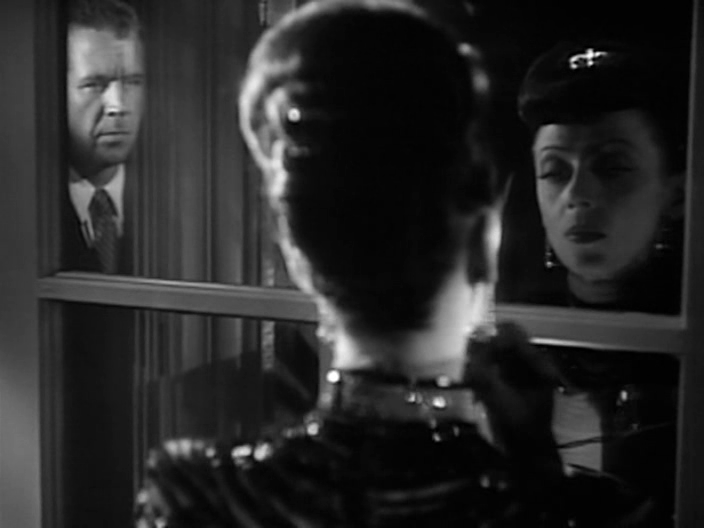A lot of noir films were inspired by the tumult of WWII, but Cornered addresses this worldwide crisis of conscience more directly than most, dealing specifically with post-war France and the hunt for Nazi war criminals. The opening acts of the film take place in the grimy bombed out ruins of postwar France, while the bulk of the story takes place in the more tropical and civilized-seeming climes of South America, where many Nazis have emigrated to hide out.
Dick Powell, recently discharged from the military for medical reasons(the aforementioned head injury) sneaks back into France with the intention of finding his wife's murderer. She was a French resistance fighter, one of many executed and left in a mass grave. His search puts him on the trail of Jarnac, a mysterious man whom few have seen, and that official documents say is dead. Powell believes otherwise and coerces his resistance contacts into helping him track Jarnac to Brazil.
Dick Powell is presented as a man so damaged by the war, physically & mentally, that he only has room in his mind for one idea; to kill Jarnac. He's a bull in a china shop that's already been devastated. His quest threatens to destroy whatever might still be standing in a world that's already fallen apart. In France his old resistance comrades are wary of helping him, or at the very least do not have the time to spare. Their fight has moved from the literal battlegrounds of the war to the less glamorous bureaucratic arena of nation building. He wants to kill one man as revenge for his wife's murder, his old allies are concerned with infrastructure and squabbles over livestock, the day to day business of returning a sense of normalcy. The latter half of the film follows Powell as he tries to ferret out the mysterious Jarnac in South American high society. His presence in South America is just as much of a disruption as it was in France, as his quest disrupts not only glitzy parties, but the more organized attempts of officials to bring Nazis to justice. The officials desperately need Jarnac alive, to lead them to the countless other Nazis in hiding, while Powell merely wants him dead.
And therein lies the radical message within Cornered; that your instinct for revenge is wrong. Powell's satisfaction comes at the cost of finding justice for thousands of others, many of whom have suffered worse than he has. In fact, the moment of revenge goes unnoticed by Powell, who, in a shockingly brutal scene, slips into a fugue state while pummeling Jarnac's face. As he comes to, he doesn't realize what he's done, is convinced he merely knocked Jarnac unconscious. There is a quickly discovered happy ending to the film, as an alternate route to Jarnac's comrades is found, but this doesn't quite obscure the message; revenge is a hollow pursuit, even when the crime is as great as it was in WWII. Justice is much harder, but an overall healthier choice. It's a lesson Powell learns too late, but one that, the film hopes, the world will take to heart.



_01.jpg)